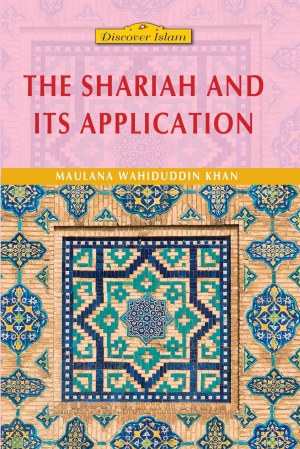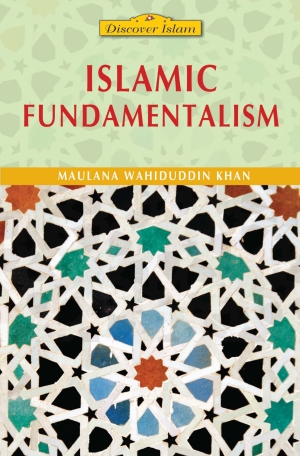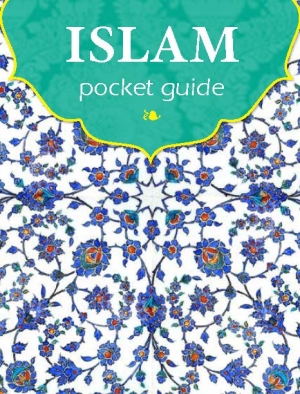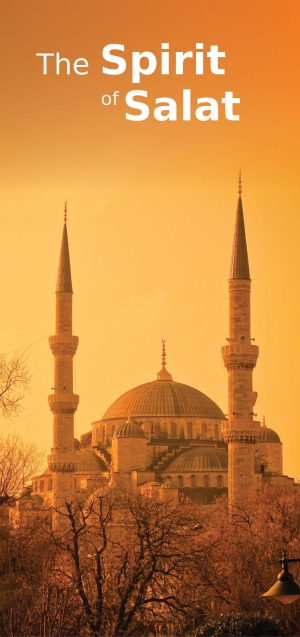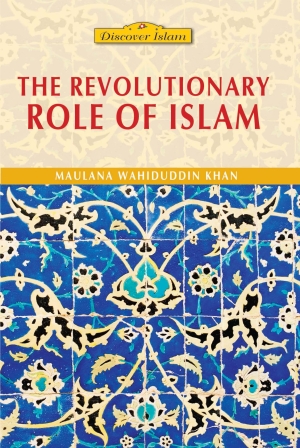Principles of this life are forms of subservience as laid down in the Quran, and God’s Prophet has demonstrated them practically in his life. The only life pleasing to God, then, follows the guidance of the Quran and the example set by the Prophet. The religion the Prophet left us guides us in every walk of life; everyone should proceed by the scheme he has provided us. This scheme is based on certain tenets on which the whole of the Islamic life is based.
Islam is a complete code of life, in the sense of an individual following the religion in his life by his own choice. To take Islam to be a complete socio-political system that the force of political power must establish—is the wrong idea. The concept of Islam being a complete code of life that has to be imposed on people will always yield counterproductive results. Those who believe in this notion and try to implement it in society forcibly will turn Islam, a religion of well-wishing for others, into a religion of enmity and hatred.
According to the creation plan, God has bestowed complete freedom to man. Every human being has been allowed to think as one chooses and act accordingly. This divine scheme of things necessarily demands that every person enjoys complete freedom.
Featured Articles
Featured Videos
FAQs
Man is God’s servant, and indeed, the only proper way for man in this world is to live as the servant of God. Islam, in fact, is another name for this life of servitude to God. Where the Islamic life is devoted to the service of God, the un-Islamic life unashamedly flouts the will of God. Islam teaches man to lead an obedient life and surrender himself completely to the will of God. It is people who do so who will share God’s blessings in the next world.
Islam means submission. The religion of Islam is so named because it is based on obedience to God. A true believer in Islam is one who subordinates his thinking to God, who follows God’s dictates in all aspects of his life.
Islam is the religion of the entire universe. For the entire universe and all its parts are functioning in accordance with the law laid down by God.
Such behaviour is also desired of man. Man should also lead his life as God’s obedient servant just as the rest of the universe is fully subservient to God. The only difference is that the universe has submitted to God compulsorily, while man is required to submit to the will of God by his own choice.
When man adopts Islam, first of all it is his thinking which comes under Islam, then his desires, his feelings, his interests, his relations, his loves and his hatred. All are coloured by his obedience to God’s will.
When man, in his daily life comes under God’s command, his behaviour with people, his dealings all are molded by the demands of Islam. From inside to outside he becomes a person devoted to God.
Source: Simple Wisdom
The following are some principles to follow to lead an Islamic way of life:
Avoidance of transgression: God Almighty has declared in the Quran: “Eat of the good things we have given for your sustenance, and do not transgress with respect to them.” (20:81)
Self-reliance: One should try one’s utmost to earn one’s daily bread by one’s own efforts, without being dependent on anybody else. The Prophet Muhammad, may peace be upon him, is reported to have said repeatedly: “The best food one has ever had is that which one has earned with one’s own hands.” (Sunan al-Nasa’i, Hadith No. 4397)
Avoidance of niggardliness and spending in charity: When one is fortunate enough to earn even more than it takes to meet one’s own needs, one should not try to be parsimonious with one’s earnings. Instead, one should rather extend a supporting hand to less fortunate or even destitute members of society. Otherwise, one’s wealth will become a curse for oneself rather than a blessing. Hence, the Prophet Muhammad, peace be upon him, said, “There is not a day upon which the servant awakens but that two angels descend. One of them says: O God, repay one who spends in charity! The other says: O God, give destruction to one who withholds charity!” (Sahih al-Bukhari, Hadith No. 1442, Sahih Muslim, Hadith No. 1010)
Contentment: To attain inner peace and real happiness, one has to remain content with what one has been able to earn independently and lawfully. The Prophet Muhammad, may peace be upon him, says in this respect: “Indeed, he has attained eternal success and prosperity who accepted Islam, and God has filled his heart with contentment towards whatever he was given.” (Sahih Muslim, Hadith no. 125) On behalf of Angel, the Prophet also said: “A little that suffices is much better than a surfeit that causes disturbance.” (Musnad Ahmad, Hadith No. 21721)
Simplicity: Last, but not least, an important Islamic principle concerning one’s livelihood is simplicity. The Prophet’s own lifestyle was a unique example of simplicity. In one of his sayings he has even considered it one of the signs of true faith (Ibn Majah). In another hadith, he warns his companions: “Stay away from the luxurious life. For the servants of God do not indulge in luxury.” (Musnad Ahmad, Hadith No. 22105)
Source: Islam Rediscovered
The Islamic way of life, in a word, is a God-oriented life. The greatest concern of a Muslim is God Almighty. The focus of his whole life is Akhirat, that is, the ideal world of God. He always obeys divine injunctions in every aspect of life. His life becomes a practical expression of the Quranic verse:
“Take on God’s own dye. And who has a better dye than God’s? And we are His worshippers. (2:138)
‘Taking on God’s dye,’ means being of a ‘godly character’ in all the personal, social and economic affairs of one’s life. The following pages of the chapter are devoted to portraying various aspects of this ‘godly’ character as personified in a Muslim individual whose words and deeds in family matters, or with respect to earning one’s livelihood and whose dealings with other members of society, always seem to be distinguishably ‘dyed in the divine hue.’
Here is an example to illustrate this point. When a stone is dropped in water, it descends to the bottom and settles there. It is in the water but separate from it. On the other hand, if a dye is put into the same glass, the dye and water combine. The water is not separate from the dye. Both have intermingled in such a way that no one can detect any difference between the two. The relationship between Islam and a true believer should be like that of dye and water, not of stone and water. Islam should not be just an accessory to a Muslim’s life; it should merge with his whole being; as the Quran says, Islam should be entered into ‘in its totality’. (2:208)
Source: The Man Islam Builds
When a person adopts Islam in the true sense, it becomes the throb of his heart as it permeates his emotions. It enters his thoughts, moulding his intellect in its own fashion. It becomes the eye with which he sees, the tongue with which he speaks, the hands and feet with which he performs his daily functions. It takes possession of a person, to the exclusion of everything else. His every statement bears the stamp of Islam and his every action becomes dyed in Islamic colours.
If Islam is like a stone in water in a person’s life, it is not Islam at all. Faith should be absorbed in a person like dye is dissolved in water. Just as the emotions of love and hate are felt by the whole body, so, when one adopts Islam in the real sense of the word, it becomes an issue affecting one’s whole existence. The Muslim and Islam become inseparably attached to one another.
By way of introduction to the Islamic way of life, some sayings of the Prophet Muhammad are mentioned here:
“Let him who believes in God and the Last Day be generous his neighbour; and let him who believes in God and the Last Day honour his guest; and let him who believes in God and the Last Day either speak good or keep silent.” (Sahih al-Bukhari, Hadith No. 6018)
“Fear God wherever you are, and follow up a bad deed with a good one and it will wipe it out, and behave well towards people.” “Righteousness is good-naturedness, and evil is what wavers in your soul that you would not like people to find out about you.” “None of you truly believes until he wishes for his brother what he wishes for himself.”
A man came to the Prophet and said: “Messenger of God, tell me something which, if I do it, will win me the love of both God and men.” The Prophet said, “If you renounce the world, God will love you; and if you renounce what people possess, they will love you.”
These are some principles that one follows when one adopts an Islamic way of life.
Source: Spirit of Islam November 2019






